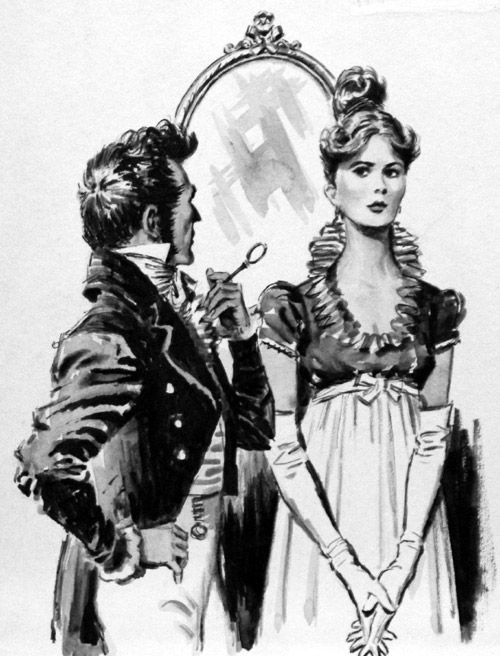Jane Austen's Pride and Prejudice
I'm reposting this because, despite all of my good intentions, I am still trying to figure out my new life, and my schedule. I am going to shoot for starting this in the beginning of April so that I can finish up the books I'm currently reading, finish up the Esther Bible study...and feel a little more caught up with life.
We will begin reading Pride and Prejudice this week. I have never read Pride and Prejudice before as I generally hate British novels. I am really excited to read with you.
Summary
This rich social commentary—Pride and Prejudice—is sometimes considered to be Jane Austen's finest novel*. It is certainly among her more famous ones. Austen sets her entertaining study of manners and misconceptions against the backdrop of a class-conscious society in 18th-century England.
This rich social commentary—Pride and Prejudice—is sometimes considered to be Jane Austen's finest novel*. It is certainly among her more famous ones. Austen sets her entertaining study of manners and misconceptions against the backdrop of a class-conscious society in 18th-century England.
Spirited, intelligent Elizabeth Bennet is alternately enchanted and affronted by Mr. Darcy. She is quick to suspend her usual, more rational judgment when it comes to him. She also is quick to believe the worst gossip about this haughty, opinionated man, who soon manages to alienate Elizabeth and her family. But is the condescending air that Mr. Darcy wars an indication of his real character? Or has Elizabeth's pride gotten in the way of her chance for true romance? (From Norton Critical Editions .)
"... It is perhaps worth emphasizing what may be called the hardness - at least the firmness - of Jane Austen's thought exhibited in all these undeceptions. The great abstract nouns of the classical English Moralists are unblushingly and uncompromisingly used; good sense, courage, contentment, fortitude, 'some duty neglected, some failing indulged', impropriety, indelicacy, generous candor, blamable trust, just humiliation, vanity, folly, ignorance, reason. These are the concepts by which Jane Austen grasps the world. ... All is hard, clear, definable; by some modern standards, even naively so. The hardness is, of course, for oneself, not for one's neighbors. ... Contrasted with the world of modern fiction, Jane Austen's is at once less soft and less cruel. ... It remains to defend what I have been saying against a possible charge. Have I been treating the novels as though I had forgotten that they are, after all, comedies? I trust not. The hard core of morality and even of religion seems to me to be just what makes good comedy possible. 'Principles' or 'seriousness' are essential to Jane Austen's art. Where there is no norm, nothing can be ridiculous, except for a brief moment of unbalanced provincialism in which we may laugh at the merely unfamiliar. Unless there is something about which the author is never ironical, there can be no true irony in the work. 'Total irony' - irony about everything - frustrates itself and becomes insipid. ... If charity is the poetry of conduct and honor the rhetoric of conduct, then Jane Austen's 'principles' might be described as the grammar of conduct. Now grammar is something that anyone can learn; it is also something that everyone must learn. ... She is described by someone in Kipling's worst story as the mother of Henry James. I feel much more sure that she is the daughter of Dr. Johnson: she inherits his common sense, his morality, even much of his style. ..."
C.S. Lewis
A Note On Jane AustenIn Essays in Criticism (Oct. 1954)
A Note On Jane AustenIn Essays in Criticism (Oct. 1954)
Book Club will begin next week.
A little orientation for newbies before we begin
A few guidelines while participating in this book club
How to participate in a discussion
1. Watch your language! Try to avoid words like "awful" or "idiotic"—even "like" and "dislike." They don't help move discussions forward and can put others on the defensive. Instead, talk about your experience—how you felt as you read the book.
1. Watch your language! Try to avoid words like "awful" or "idiotic"—even "like" and "dislike." They don't help move discussions forward and can put others on the defensive. Instead, talk about your experience—how you felt as you read the book.
2. Don't be dismissive. If you disagree with someone else, don't refer to her as an ignoramus. Just say, "I'm not sure I see it that way. Here's what I think." Much, much nicer.
3. Support your views. Use specific passages from the book as evidence for your ideas. This is a literary analysis technique called "close reading." (LitCourse 3has a good discussion of close reading.)
4. Read with a pencil. Takes notes or mark passages that strike you—as signficant or funny or insightful. Talk about why you marked the passages you did.
5. Use LitLovers for help. Check out our Litlovers Resources above. They'll help you get more out of what your read and help you talk about books with greater ease.
(Discussion tips by LitLovers. Please feel free to use them, online of off, with attribution. Thanks!)
Also, it will be easier to work through questions and respond to each other if we join My-Bookclub.com
Join the club: 'reEducation of the Feminine Soul'.
www.my-bookclub.com!
www.my-bookclub.com!
You can of course still comment on this page but if you join the book club we can be a little more fluid in our conversation.
I hope to see you there next week with chapters 1 and 2 read and ready for discussion Saturday April 6th!



